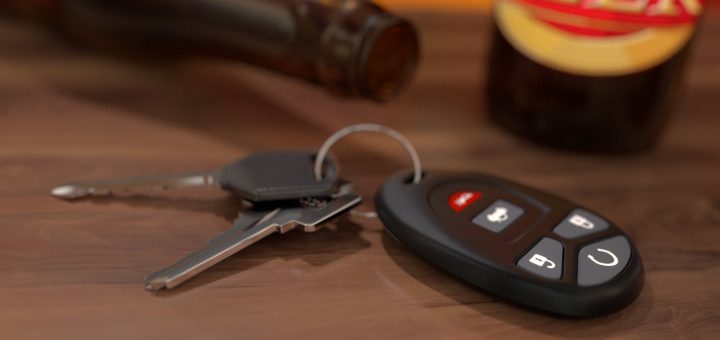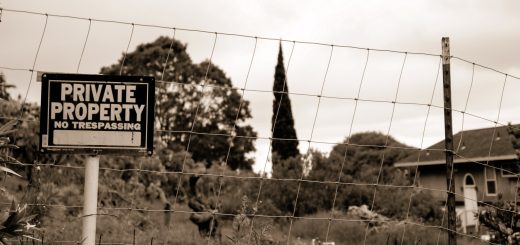Sanctuary from Drunk Driving Sanctions: SCC to hear appeal in R v McColman

Does private property provide a sanctuary for drunk drivers and prevent the police from conducting sobriety checks? This issue split the Court of Appeal for Ontario (“ONCA”) in R v McColman, 2021 ONCA 382 [McColman]. On 3 February 2022, the Supreme Court of Canada (“SCC”) granted leave to hear the appeal.
Background
In March 2016, Constables Jack Lobsinger and Laura Hicks were conducting patrol outside Thessalon First Nation. They saw a utility terrain vehicle outside a restaurant and gas station that appeared to be leaving, and decided to conduct a sobriety check on the driver. The vehicle drove only 200 metres on the public roadway before turning onto a private driveway. The police followed the vehicle onto the driveway. When the officers got out of their car, they saw the driver, Walker McColman, standing by the passenger side of the parked vehicle.
The officers immediately noticed signs of impairment including unsteadiness and bloodshot eyes. When asked, Mr McColman admitted that he might have had ten beers. The officers arrested Mr McColman and conducted two breath samples at the police station. The breath samples showed a blood alcohol concentration of 120 mg and 110 mg of alcohol per 110 ml of blood.
Mr McColman was charged with and subsequently convicted of impaired operation of a motor vehicle and an “over 80” offence pursuant to sections 253(1)(a)-(b) of the Criminal Code, RSC 1985, c C-46 (now sections 320.14(1)(a)-(b)).
The SCC was offered the opportunity to decide three issues (Applicant’s Memoranda of Argument, para 18):
- Was the random sobriety check authorized by the Highway Traffic Act, RSO 1990, c H.8 [HTA]?
- Was the random sobriety check authorized by the common law?
- Did the majority of the Ontario Court of Appeal err in law by failing to conduct a contextual s. 24(2) analysis and overlooking relevant factors?
Trial Judge Convicts of Driving “Over 80”
Before the Ontario Court of Justice, Mr McColman brought a Charter application claiming that the stop was arbitrary and therefore, infringed upon his section 9 right to be free from arbitrary detention. The trial judge found that because the police had formed the intention to stop Mr McColman while he was on the highway, and the purpose of the stop was to check the driver’s sobriety, it was lawful under section 48(1) of the HTA. The stop was lawful and not arbitrary; thus, it did not violate Mr McColman’s Charter rights. The trial judge convicted Mr McColman summarily of an “over 80” offence under the Criminal Code—driving with a blood alcohol content in excess of 80mg of alcohol per 100ml of blood.
Superior Court Finds Sobriety Stop Violated Charter
On appeal, a justice of the Superior Court found that section 48(1) of the HTA did not empower the police to perform a sobriety stop on private property. Once Mr McColman was on private property, he was no longer a “driver” within the meaning of the HTA. Additionally, the police had no common law power to perform the stop as the public did not require protection from someone on their own property. Accordingly, the Superior Court overturned the conviction.
Ontario Court of Appeal
Majority (Tulloch, Feldman JJA)
A majority of the ONCA found that the police had neither statutory nor common law authority to make the sobriety stop. It was thus arbitrary and violated the Charter.
The majority construed three requirements under section 48(1) of the HTA:
- The police officer must be readily identifiable as a police officer;
- the person being stopped must be a “driver” for the purposes of the HTA; and
- the purpose of the stop must be to determine whether there is evidence to justify making a demand for a sample of breath or other means of testing the driver’s sobriety (McColman, para 26).
A “driver” under the HTA is a “person who drives a vehicle on the highway” (HTA, section 1). A private driveway is not a “highway,” and so Mr McColman in this case was not a “driver.” Section 48(1) did not apply as the second criteria was not met.
Justice Tulloch then turned to the common law and found that no common law power to conduct random stops on private property had been recognized. However, the SCC has held that courts can continue to fill legislative gaps through the common law, if necessary, through the ancillary powers doctrine (Fleming v Ontario, 2019 SCC 45 [Fleming]). Here, the police power to perform sobriety stops on private property could exist only if reasonably necessary. If the police could fulfil their duty in a way that infringed less on liberty, the power would not be reasonably necessary (McColman, para 55).
Justice Tulloch determined that the expansion of the sobriety stop power onto private property was not reasonably necessary considering the importance of their duty to the public good, and the necessity and extent of interference with personal liberty. He found that there was no common law power to make the stop.
Having determined that there was no statutory or common law power to perform the sobriety stop on private property, the stop did violate Mr McColman’s section 9 Charter rights.
Dissent (Hourigan, JA)
In dissent, Justice Hourigan found that the police did have statutory authority to stop Mr McColman.
Justice Hourigan agreed with the Crown that section 48(1) of the HTA requires that:
- the police officer observes the driver operating on a highway;
- the police officer forms the intention to stop the driver for a sobriety check while the driver is still on the highway; and
- although the driver leaves the highway and enters private property before the stop is conducted, the events constitute one continuous investigative transaction (McColman, para 112).
Justice Hourgian applied principles of statutory interpretation. He determined that to give effect to the legislature’s intent, the power must allow police to pursue a crystallized intention to stop a driver off the public roadway. The purpose of the HTA is to protect the public (McColman, para 131). The majority’s finding (which he termed a “sanctuary finding”) did not give appropriate regard to this purpose. (McColman, para 96).
Under the sanctuary finding, citizens could simply pull off the road into the “sanctuary” of private property, where police would no longer have the power to check their sobriety. Finding that Mr McColman was immune from a police stop absent reasonable and probable grounds, just because he had crossed the invisible line over to private property, created an absurd result. Additionally, the finding would mean that drivers who are pulled over for other legal reasons would be immune to police scrutiny if they pulled over onto private property.
In considering the common law, Justice Hourigan also applied Fleming, but found that he could recognize a police power to stop Mr McColman. Because driving is a licensed activity, it is subject to state control to protect the public. Thus, a random stop interferes minimally with individual liberty (McColman, para 150).
Expansion of Powers May be Reasonable — But are Random Stops?
At the ONCA, the Crown argued that, if police form the intention to effect a random stop while the person is a “driver” within the meaning of the HTA, police should be allowed to complete the stop even if the driver pulls onto private property.
So long as this argument carries a requirement of strict temporality—that is, the police must complete the stop immediately—I see no reason why the HTA would not empower the police to do so. Police cannot, of course, say they formed an intention to conduct a random sobriety stop within their HTA powers, hang around, and then wait until a person is intoxicated to actually complete the stop. That would stretch the power too far and invite police officers to encroach at will on citizen’s private lives.
Justice Hourigan’s dissent is much more compelling than the majority on this point. In the specific context of a sobriety stop, police should not be prevented from checking driver sobriety just because an intoxicated driver got lucky and pulled off the road at the same time the officer reached for the siren. The HTA powers are intended to prevent drunk driving. It would frustrate the purpose of the empowered stops—regulating drunk driving—if drivers could simply pull off the road when they see a police car to avoid the stop, and then carry on driving drunk once the police car is out of sight.
The more pressing question is, what justifies randomized police stops in the first place? The difference between a random stop executed on a highway and a random stop executed moments after a car leaves a highway, for me, is little. Either way, the stopping power rests on a presumption that randomized detention is reasonable and acceptable (at least in pursuit of the goal of preventing drunk driving). I am not sure that I agree. Random stops disproportionately affect people of colour and thus exacerbate people of colour’s now widely recognized societal disadvantage. Random stops are, by their very nature, arbitrary, even if aimed at a specific mischief. In order to stop members of the public, even for sobriety checks, police should have at minimum a reasonable suspicion that there is a need to interfere.
If Constables Lobsinger and Hicks had seen signs of impaired driving before Mr McColman pulled off the road, they should be allowed to immediately effect a sobriety stop as a permissible extension of their HTA powers. But the Constables in this case did not have a reasonable suspicion. While citizens should not, as Justice Hourigan put it, be afforded “legal sanctuary” by crossing some invisible line (McColman, para 95), citizens must also be allowed to live free from unwarranted and unreasonable state interference.
If police can stop drivers randomly, having formed the intention but having no opportunity, they should be permitted to make that stop immediately after the driver leaves the roadway. To the extent that random stopping powers exist in law, this extension seems reasonable, and prevents citizens claiming artificial legal sanctuary. Whether those powers should exist at all is another question—not one presently before the SCC, but an important one nonetheless.
Should citizens be allowed to drink and drive? No. Should our justice system provide for police to stop drivers they believe have been drinking, and penalize citizens who drink and drive accordingly? Yes. But should police be permitted to stop drivers absent a reasonable suspicion that that driver is doing something unlawful? The Ontario legislature has said yes, and we must all live with that answer for now—equitable or not.






Join the conversation